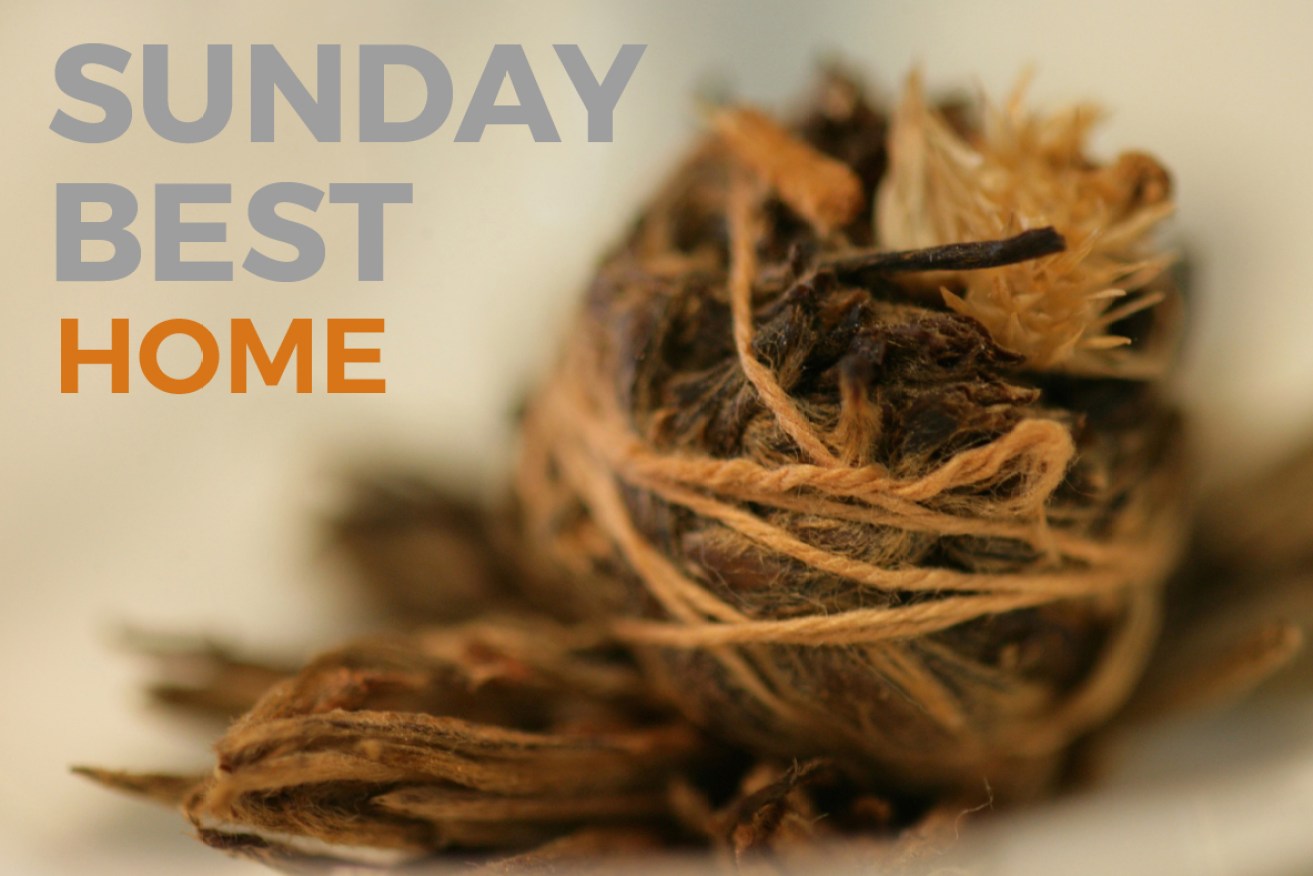The 18 healthy foods you’ve never heard of


Close-up of pu-erh tea leaves
Food marketers are spruiking the “magical components” of the latest “superfoods” with little regard for the overall health of consumers, some of Australia’s leading health experts have told The New Daily.
New healthy eating trends are shoved in our faces via television, supermarket shelves and social media feeds, highlighting ingredients that, while healthy, are often of little value in isolation.
However, that doesn’t mean the latest obscure foods to become popular – things like endive, freekah and amaranth – should be ignored altogether.
• Why do you always get sick on holidays?
• Australia’s first ‘Hangover Clinic’ opens its doors
• I quit sugar and lived to tell the tale
You should just stop thinking of them as ‘superfoods’, leading Australian nutritionist Rosemary Stanton told The New Daily.
“A healthy diet includes a wide variety of foods,” Dr Stanton said.
Interestingly, the ‘superfood’ revolution has had some positive effects, such as the way food is prepared, Health Energy director and holistic nutritionist Sarah Leung told The New Daily.
“Items, like kimchi and kefir, which are fermented, indicate a return to more ancient methods of preparing food,” Ms Leung said.
“A lot of these foods are traditionally eaten – they don’t just come from nowhere.”
“There has been a bit of a movement to older methods of preparing food, and I guess that is because that is how we are supposed to eat.”
Ms Leung said our grandparents would go to the market once or twice a week, buy what they needed in the unprocessed state and cook and preserve it in its processed state.
“A lot of people are more aware the packaged or convenience foods we have in our diet are not very good for our gut health, so by having some of those fermented foods, we can restore some of that gut flora,” she said.
If you’re thinking about changing up your everyday diet, think about adding these.
The latest ‘health’ foods

Creating clarified butter – or ghee. Photo: Getty
Harissa
Benefits: Spicy chilli or powder which contains a compound called ‘capsaicin’ that is thought to have pain-relief and cancer-protective effects.
Criticisms: Dr Stanton said this was good for flavour, but had no ‘superfood’ effects.
Buy: Supermarket or health food store.
Ghee
Benefits: This clarified butter is a main ingredient for Indian cuisine and is high in vitamins.
Criticisms: Again, Dr Stanton said this was ‘a definite non-starter as a super-food’.
Buy: Supermarket or specialty Indian food store.
Purple potatoes
Benefits: Purple potatoes are rich in potassium which is crucial for blood pressure management. It also contains an antioxidant that could help lower the risk for cardiovascular disease.
Criticisms: Any potatoes are fine – as long as they’re not doused in sour cream or fried in some undesirable kind of fat, Dr Stanton said.
Buy: Health food store.
Nutritional yeast

Kombucha is now available in mainstream supermarkets. Photo: Getty
Benefits: This can be sprinkled on food or added to pastes or sauces and is a good substitute for cheese. It has protein with nine essential amino acids as well as selenium, Zinc, B vitamins, fibre and protein.
Criticisms: Despite claims of high vitamin B12, unless it is fortified, it won’t contribute much to daily requirements.
Buy: Health food store.
Endive
Benefits: Often used in salads, endive is high in fibre and inulin which can lower cholesterol levels, benefiting the heart.
Criticisms: A healthy vegetable, but not superior to other greens, Dr Stanton said.
Buy: Supermarket or health food store.
Kimchi
Benefits: Kimchi is the Korean version of fermented cabbage, and full of vitamin A, B and C. It is very close to sauerkraut, which also contains probiotics that regulate digestion.
Criticisms: Dr Stanton said fermented foods had some value, but most kimchi was quite high in sodium.
Buy: Health food store.
Kohlrabi
Benefits: Tastes great when roasted in olive oli, is a cousin to broccoli and cauliflower and is high in potassium and fibre. It can be eaten raw or cooked. Dr Stanton said, like all vegetables, it’s worth including because it’s also a good source of vitamin C.
Criticisms: None, it fulfils the claims.
Buy: Health food store.
Kombucha

Tahini is a main ingredient in hummus. Photo: Getty
Benefits: This fermented beverage is rich in probiotics, benefiting healthy bacteria in your gut and aids in digestion.
Downside: Not a superfood, said Dr Stanton.
Buy: Supermarket or health food store.
Kefir
Benefits: Is a fermented drink made from the Kefir grain. It contains vitamin B12, calcium, iron, phosphorus, magnesium, potassium, sodium, copper, molybdenum, manganese, and zinc. Dr Stanton said this was a good source of nutrients and worth including if you liked it. “Otherwise get a decent yoghurt (without added sugar, thickeners and various additives),” she said.
Criticisms: People who are lactose intolerant will be unable to stomach Kefir.
Buy: Health food store.
Tahini
Benefits: Delicious in salads or as a fish marinade, Tahini is made from ground sesame seeds and loaded with calcium, iron, potassium and vitamin E.
Criticisms: Dr Stanton said darker tahini had more calcium, although it was not well absorbed as much of it was tied up with oxalic acid and can’t be absorbed.
Buy: Supermarket or health food store.
Amaranth
Benefits: Popped like popcorn or turned into porridge, amaranth is a seed that is rich in dietary fibre. Dr Stanton said this was a healthy food that was useful for those with coeliac disease as it had no gluten. “It’s a good product that provides protein, vitamins, minerals (including iron) as well as many phytonutrients,” she said.
Criticisms: None, it meets health claims.
Buy: Health food store.
Tempeh

Amaranth can be popped like popcorn. Photo: Getty
Benefits: Dr Stanton said the fermented soy paste, like many fermented foods, may have some health benefits. Includes some protein and iron.
Criticisms: Some brands, however, are very high in sodium, Dr Stanton said.
Buy: Supermarket or health food store.
Freekah
Benefits: This roasted wheat product is made from ‘green’ wheat, Dr Stanton said. A good source of nutrients (protein, vitamins, dietary fibre, minerals) and certainly worth including in the diet. It is a low GI carbohydrate and can be used in salads and stir-fries.
Criticisms: None, it meets health claims.
Buy: Health food store.
Wakame
Benefits: This edible seaweed can be used in soups or salads. New studies conducted at Hokkaido University have found that a compound in wakame known as fucoxanthin can help burn fatty tissue. Dr Stanton said the product provided iodine and some omega 3 fatty acids. “An excellent inclusion in the diet, especially for vegetarians. Like other seaweeds, wakame may be a sustainable source of omega 3s and so may be used more in the future,” she said.
Criticisms: Useful but not a superfood.
Buy: Health food store.
Pu-erh tea
Benefits: This is a variety of fermented and aged dark tea produced in the Yunnan province of China. Dr Stanton said it contained small quantities of a statin-like compound (statins are used in pharmaceutical form to reduce blood cholesterol levels).
Criticisms: No problems with this type of tea, but not a superfood.
Buy: Health food store.
Celeriac

Spirulina can be added to green smoothies. Photo: Getty
Benefits: Celeriac is a type of celery that can be sliced and added to soups or casseroles, and is loaded with vitamins and minerals. Dr Stanton said the useful vegetable was a good source of dietary fibre. Use it for flavour and to add variety. Can also be mashed and served on its own or mixed with mashed potato or sweet potato.
Criticisms: Good but not super, she said.
Buy: Supermarket or health food store.
Spirulina
Benefits: Comes in powder or pill form, Spirulina is a blue-green algae high in vitamins, nutrients and antioxidants that could protect cells.
Criticisms: Dr Stanton said it was often praised as a source of vitamin B12 but this particular type of B12 was not absorbed by humans.
Buy: Supermarket or health food store.
Spelt
Benefits: Spelt is a grain that includes complex carbohydrates, rich in fibre, vitamin B2, magnesium, niacin, copper and thiamin, as well as fatty and amino acids crucial for body function.
Criticisms: Dr Stanton said it was a good food, but was not a super-food and unsuitable for people with coeliac disease as it contained gluten, just like other types of wheat.
Buy: Supermarket or health food store.
– with reporting by Emma Manser









